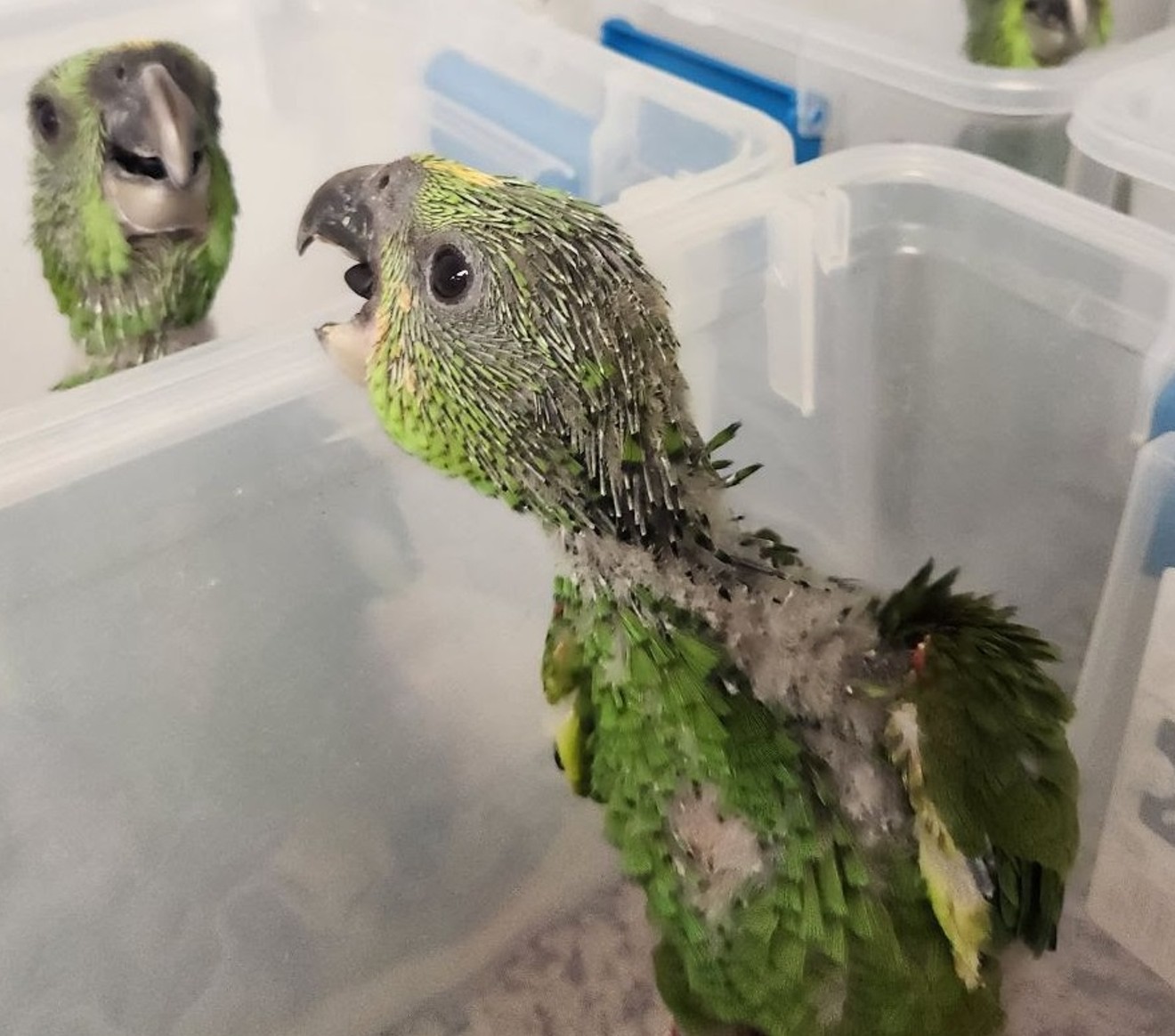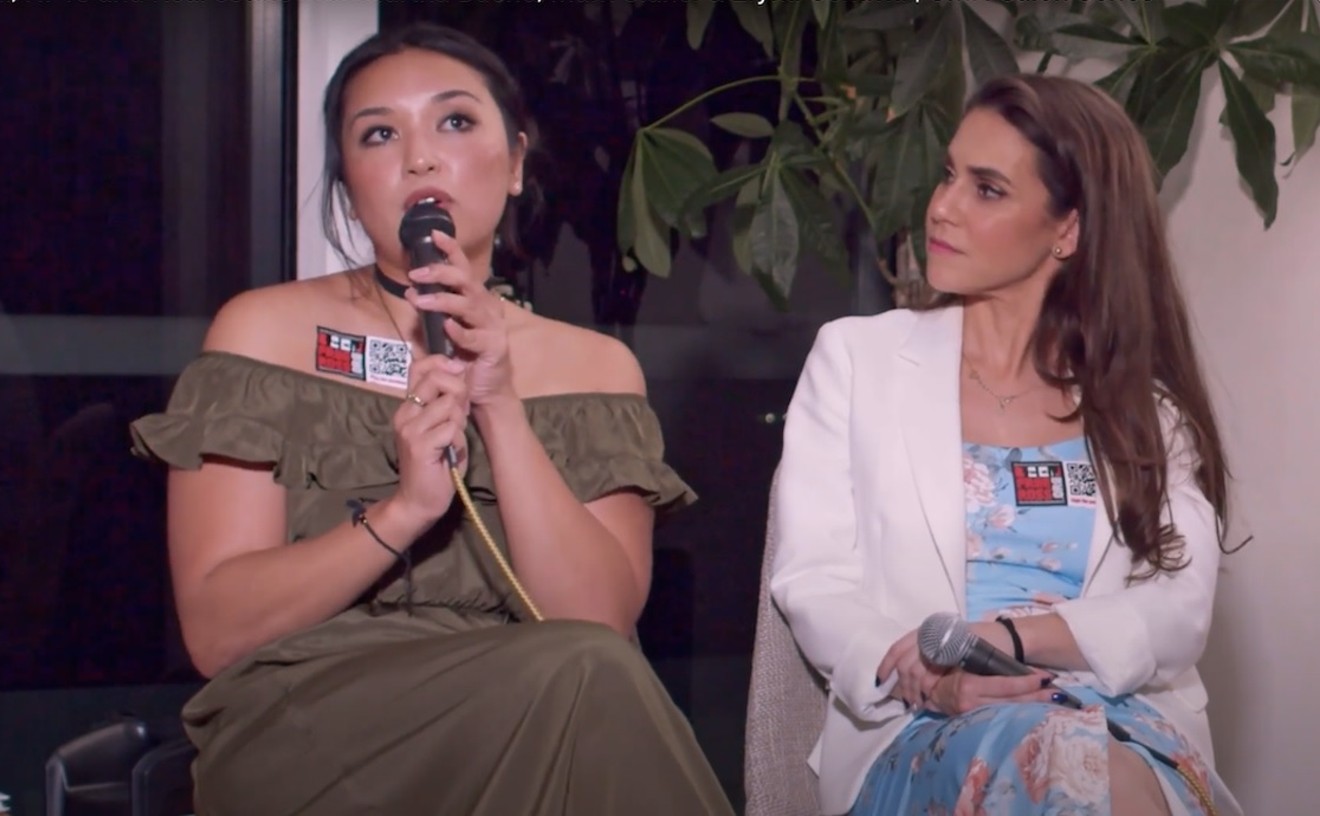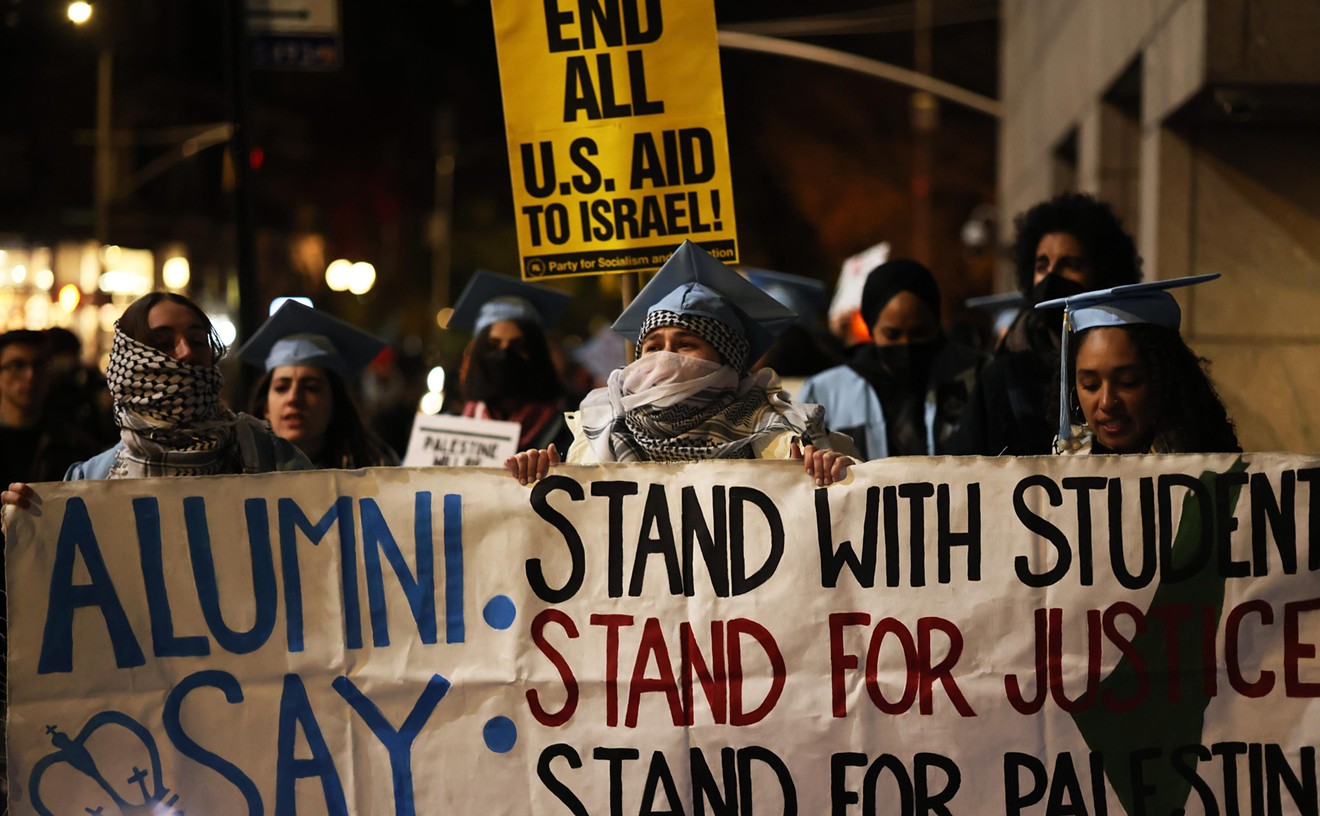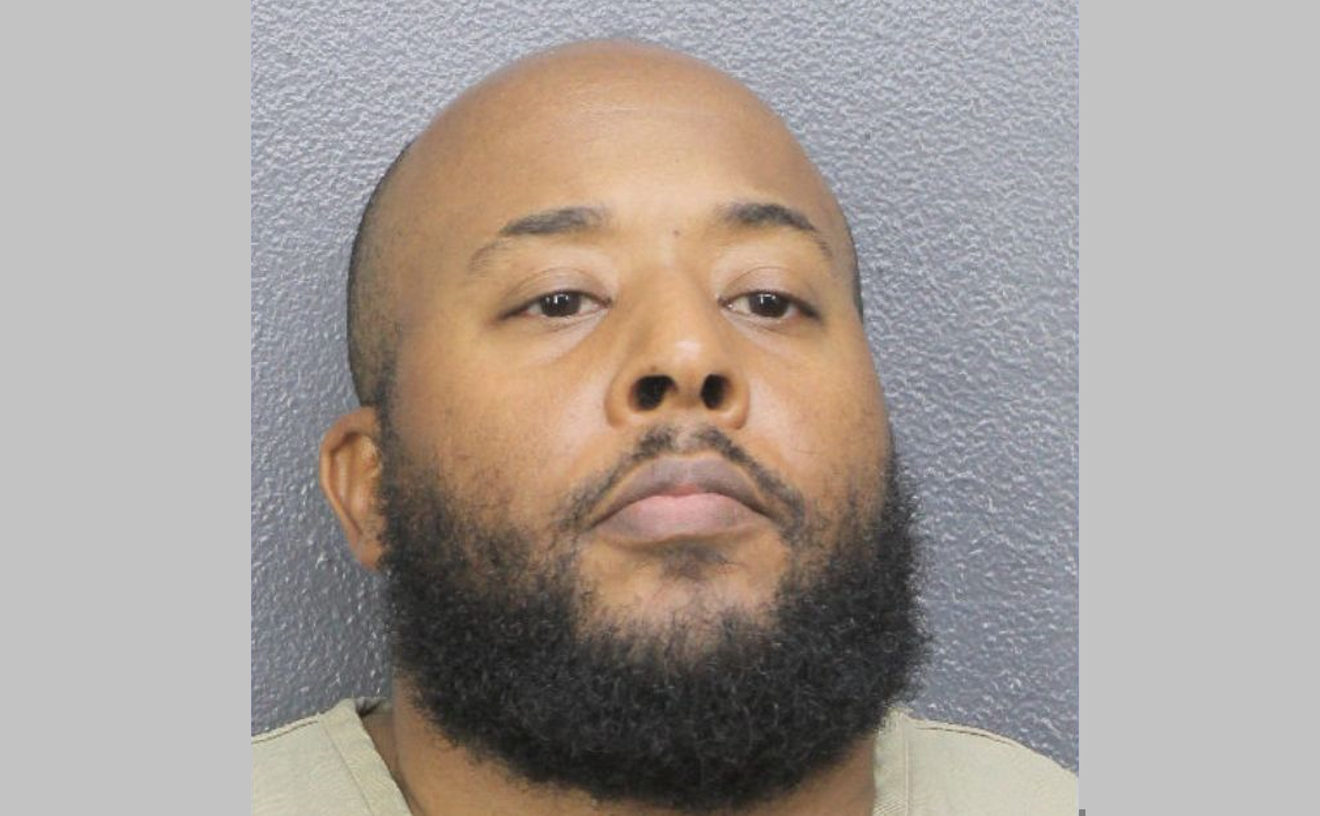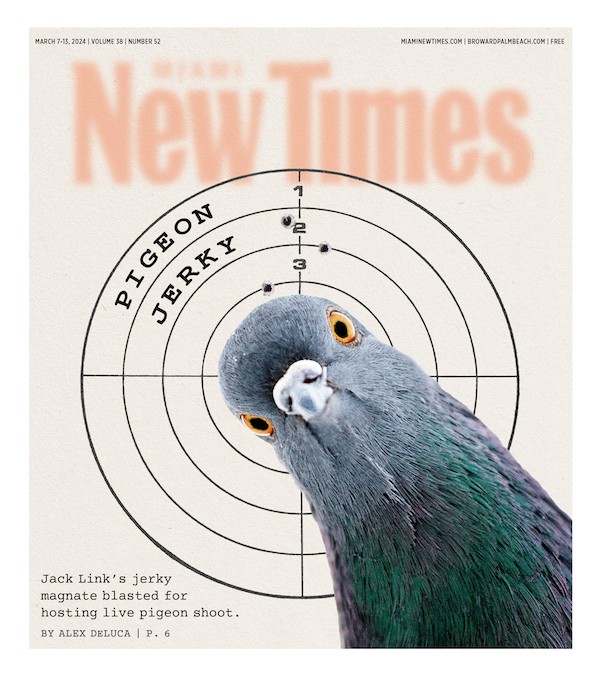The chicks, now about two months old, were discovered in a smuggler's suitcase at Miami International Airport on March 23 after customs officials heard a chirping sound from the luggage of a Taiwanese man who'd arrived on a flight from Nicaragua. Agents found 29 eggs in the man's bag, eight of which were either hatched or in the process of hatching.
Following a 45-day quarantine period, the chicks were transferred to the Rare Species Conservatory Foundation's facility in Loxahatchee under the supervision of the group's founding director, Florida International University (FIU) professor Paul Reillo.
Twenty-four chicks survived the ordeal. Federal officials initially had trouble identifying the bird species, but through DNA sequencing and researchers' visual examination, it was determined that 21 are yellow-naped amazons and three are red-lored amazons.
The smuggler, Szu Ta Wu, pleaded guilty to a smuggling charge on May 5 as part of a deal with federal prosecutors. New Times broke the news of the smuggling operation in March, detailing how Wu flew from Taiwan for a rendezvous at a hotel in Nicaragua, where he picked up the eggs from an associate before making his way to Miami. Once in custody, Wu admitted he was transporting the birds for profit, according to court documents.
In transit to Miami, Wu stored the eggs in a lunchbox-style container rigged with a thermometer and fan to keep them viable.
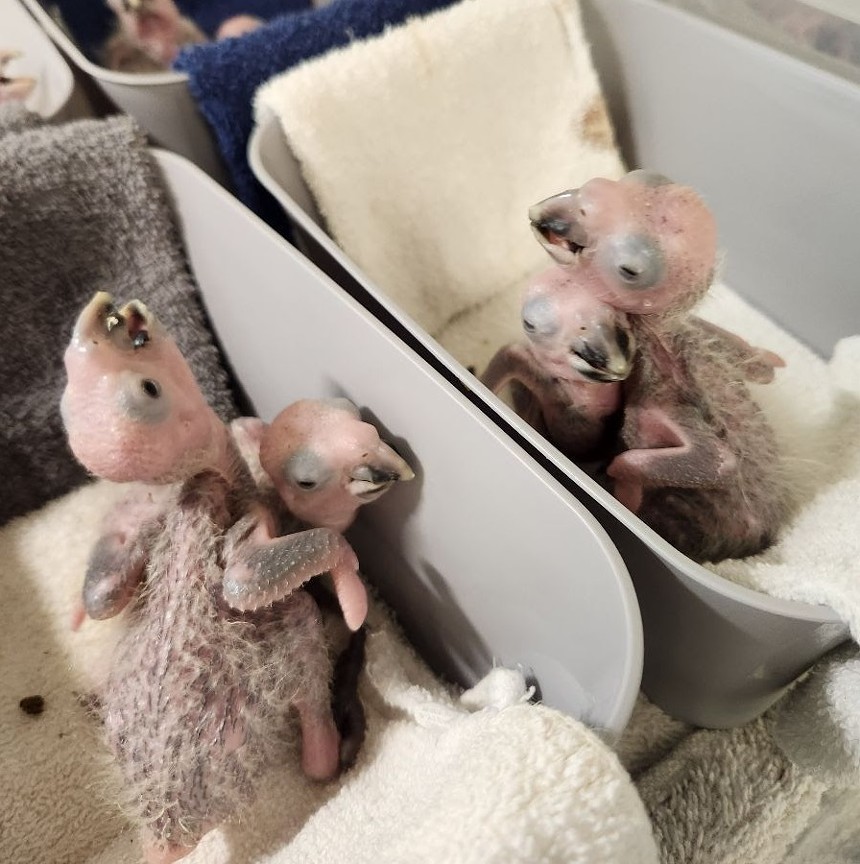
Twenty-four parrots survived the trek after being smuggled in luggage from Nicaragua to Miami International Airport in March 2023.
Photo by Florida International University
"In high demand as pets with high price tags on their heads, parrots have become innocent victims of human greed. Aside from the sheer number of eggs, what makes this case unusual is that most of the intercepted eggs were viable, and the chicks survived," Reillo said in a statement.
Reillo and his team specialize in exotic species recovery and have cared for rare bird species for more than 30 years. The federal agents who intercepted the Miami-bound parrots didn't have the specialized equipment or expertise to hatch and care for the birds properly, so they reached out to Reillo for assistance.
"It's clear this was part of a very sophisticated trafficking operation," Reillo said. "It's not easy to assemble a group of this many eggs synchronized to all hatch around the same time. The total elapsed time from the first to last hatching was just ten days."
Under the care of the Rare Species Conservatory Foundation, most of the birds are thriving and nearly fully feathered.
"Now, the parrot chicks fill their days with demanding chirps and playful movements that will soon transition to flight," FIU said in a press release.
According to FIU, due to "political issues and because the birds are being hand-reared," they likely will not be released into the wild. Reillo and the U.S. Fish and Wildlife Service hope to find homes for the parrots at South Florida zoos and wildlife centers, where they can help educate visitors about wildlife smuggling.

